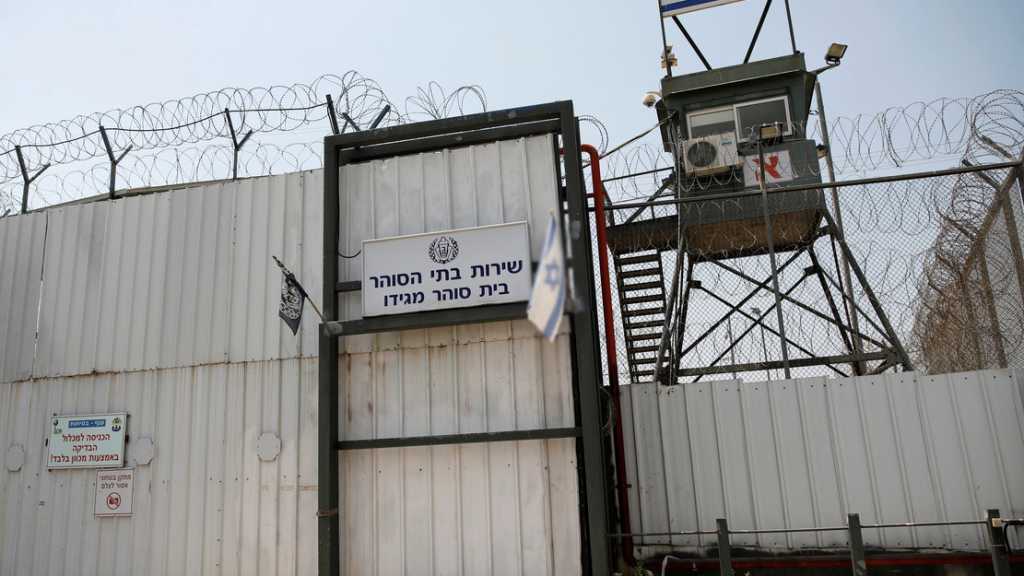COVID-19 Threatens Palestinian Prisoners Suffering Calamity behind “Israeli” Bars

By Staff, Agencies
Many Palestinians are living in a state of anxiety, fearing that their relatives detained in “Israeli” prisons could become infected with the coronavirus in the absence of the necessary health care and preventive measures.
On March 20, the “Israel” Prison Service [IPS] imposed a precautionary quarantine on a group of prisoners in Megiddo Prison, said Qadri Abu Bakr, head of the Palestinian Authority [PA] Prisoners Affairs Commission.
According to reports, the prisoners had been in contact with an investigator who had tested positive.
Palestinian concerns have increased due to conflicting news from prisons. On March 19, the Palestinian Prisoners Club and the Hamas Prisoners Information Center announced that four prisoners in Megiddo Prison had been infected with the virus, based on what prisoners had reported.
On March 24, prisoners at several “Israeli” prisons have sent their breakfast back and closed some sections of the prisons in refusal of the Zionist entity’s policies, which they claim take advantage of the spread of the virus that causes COVID-19 and rob them of their rights, according to the Palestinian Prisoners Club.
These policies include removing more than 140 items from the prisons’ canteens, such as cleaning materials and many detergents such as soap and shampoo, which Abu Bakr noted can help prevent the spread of the virus.
The prisoners’ protests began on the morning of March 20, when some also sent their breakfasts back to protest the IPS policies.
“The protest steps will continue in the coming days and may reach a hunger strike,” he added, pointing out that the IPS started sterilizing some prison sections after the prisoners sent their breakfasts back.
Although there have been no casualties among the prisoners yet, the possibility of the virus infecting them remains high, since they are exposed to military investigators, doctors and “Israeli” prisoners who may have been in contact with an infected person in the Zionist entity, where more than 1,656 cases had been recorded as of March 24.
In addition, the virus could spread quickly given inadequate health care and preventive measures in prisons, as well as direct contact due to overcrowding.
“The leadership of the resistance is in permanent session to assess the situation and consult on appropriate measures regarding this dangerous development that affects the health of our prisoners,” al-Qassam Brigades spokesman Abu Ubaida said via his Telegram account.
There are more than 7,000 male and female inmates in “Israeli” prisons; some are elderly. According to the Prisoners Affairs Commission, there are more than 700 male and female sick prisoners, 170 of whom are in critical condition, including 25 patients with cancer and 17 prisoners who almost permanently stay in the Ramla Prison hospital. Meanwhile, dozens suffer from movement disabilities, paralysis, hepatitis C, kidney failure, heart diseases and other illnesses, making them more vulnerable to the virus.
Comments
- Related News




